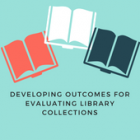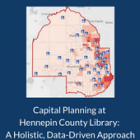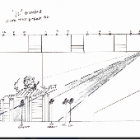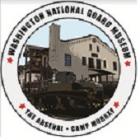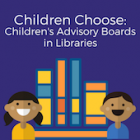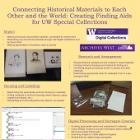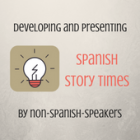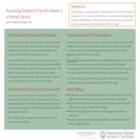
Assessing Student and Faculty Needs in a School Library
In response to a school librarian’s concern about underutilization of library resources and services, we developed surveys to gather baseline qualitative and quantitative data about student and faculty use and expectations of the library. We found that many students and faculty lack the time to seek out meaningful relationships with the library, contributing to inconsistent information literacy instruction and underutilization of library resources and services. We reviewed the data with our sponsor and co-developed ideas for addressing barriers to library usage, including partnering with student groups to brainstorm outreach initiatives and advocating for an integrated information literacy curriculum.

